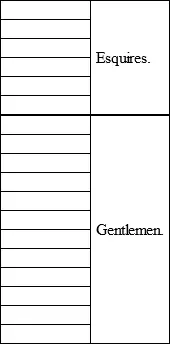Thomas Akins - History of Halifax City
Здесь есть возможность читать онлайн «Thomas Akins - History of Halifax City» — ознакомительный отрывок электронной книги совершенно бесплатно, а после прочтения отрывка купить полную версию. В некоторых случаях можно слушать аудио, скачать через торрент в формате fb2 и присутствует краткое содержание. Жанр: foreign_antique, foreign_prose, Историческая проза, на английском языке. Описание произведения, (предисловие) а так же отзывы посетителей доступны на портале библиотеки ЛибКат.
- Название:History of Halifax City
- Автор:
- Жанр:
- Год:неизвестен
- ISBN:нет данных
- Рейтинг книги:3 / 5. Голосов: 1
-
Избранное:Добавить в избранное
- Отзывы:
-
Ваша оценка:
- 60
- 1
- 2
- 3
- 4
- 5
History of Halifax City: краткое содержание, описание и аннотация
Предлагаем к чтению аннотацию, описание, краткое содержание или предисловие (зависит от того, что написал сам автор книги «History of Halifax City»). Если вы не нашли необходимую информацию о книге — напишите в комментариях, мы постараемся отыскать её.
History of Halifax City — читать онлайн ознакомительный отрывок
Ниже представлен текст книги, разбитый по страницам. Система сохранения места последней прочитанной страницы, позволяет с удобством читать онлайн бесплатно книгу «History of Halifax City», без необходимости каждый раз заново искать на чём Вы остановились. Поставьте закладку, и сможете в любой момент перейти на страницу, на которой закончили чтение.
Интервал:
Закладка:
On Monday, the 2nd of October, 1758, the newly elected members met in the Court House in Halifax, pursuant to summons from the Provost Marshall; their names were as follows:

They sent Messrs. Nesbitt, Newton and Rundell, to wait on the Governor, who sent Messrs. Morris and Green from the Council to swear them in. They then chose Robert Saunderson their speaker, which was confirmed by the Governor, who addressed them as follows: "Gentlemen of the Council and House of Representatives: His Majesty having been most graciously pleased by his royal instructions to his Governors of this Province to direct the calling an assembly of the freeholders to act in conjunction with his Governor and Council as the Legislative Authority, when such a measure should be found essential to his service; I am to assure you that it is with particular pleasure I now meet you convened in that capacity, in consequence of a plan some time since formed here for that purpose, with the advice and assistance of His Majesty's Council, and by me transmitted to the Lord Commissioner for Trade and Plantations to be laid before His Majesty for his approbation.
"Gentlemen of the House of Representatives:
"I entertain the most sanguine hopes that you are come together unanimously disposed to promote the service of the Crown, or in other words, the real welfare and prosperity of the people whom you have the honour to represent, in every point to the utmost of your authority and capacity.
"This, I presume, you will conceive is justly to be expected, not only from the immediate regard due to the Civil Rights and Interests of your constituents, but likewise from the unspeakable obligations you are under to demonstrate in their behalf your dutiful sense of His Majesty's paternal concern for the prosperity and security of those his subjects in those distinguishing marks of his royal favour and protection which we have from time to time so happily experienced in the fleets and armies sent out for our immediate preservation when we were under the most imminent danger of being swallowed up by a merciless enemy; also in the ample supplies of money for so many years annually granted for the support and encouragement of this infant colony; and moreover still, in the continuance of His Majesty's royal bounty for that purpose, when from the seeming inclination of the inhabitants to have an assembly convened some time ago, it might have been presumed, and indeed by an article of His Majesty's Instructions, which I shall order to be laid before you, it has been judged that the Colony has become capable of providing for the necessary support of government here, as has been usual in all His Majesty's other American Dominions.
"Gentlemen of both Houses:
"As my Military occupation requires my attendance as early as possible upon the Commander-in-Chief of the Forces to the Westward, and as the Lieutenant Governor is now necessarily employed, and will be for some time to come, upon an enterprise of importance in a distant part of the province, there is not at present an opportunity of entering upon such particulars as might otherwise call for your attention; I am therefore earnestly to recommend to your serious consideration the expediency, or rather the necessity of unanimity and dispatch in the confirmation of such Acts or resolutions of a legislative nature, as the Governor and Council under His Majesty's Royal Instructions have found expedient, before the forming of an assembly and indispensably necessary for promoting the welfare and peaceable Government of this people.
"You may depend upon it, Gentlemen, on my return to the Government you will find me perfectly disposed to concur with you in enacting such further laws, making such amendments to the present ones, and establishing such other regulations as shall appear upon more mature deliberations to be consistent with the honour and dignity of the Crown and conducive to the lasting happiness of His Majesty's subjects where I have the honour to preside.
Charles Lawrence."The House then resolved that the members should all serve without pay for the session. The calling of the Legislature had been delayed till the autumn in consequence of both the Governor and Lt. Governor being absent with the Army at Louisburg. Governor Lawrence came up to Halifax from Louisburg specially to meet the Legislature.
The Governor in his letter to the Board of Trade about this time noticed particularly the serious effects on the settlement of the enormous importation and retail of spirituous liquors, and expressed a hope that the Legislature would check it.
On 2nd July, 1761 (second session) the House voted £50 for a public clock in the Town.
The following year (1759) Halifax was again the rendezvous for part of the fleet and army both before and after the siege of Quebec; not a few of the more enterprising settlers followed the camp and enriched themselves during the war, Admiral Darell with 4 ships of the line arrived in Halifax Harbor in April and left for the St. Lawrence on 5th May.
At the news of the victory, the town was illuminated, and fire works, bonfires and other public entertainments lasted several days.
Between the years 1759 and 1763 the harbor had been the constant resort of the squadrons under Lord Colville and others; the place was enlivened by the presence of a large army and navy, and at the close of the war several gentlemen of condition were induced to become settlers.
Peace having been proclaimed in 1763, the 28th day of December of that year was solemnized at Halifax as a day of thanksgiving on account of the termination of the war. Though the town possessed all the advantages to be derived from the presence of the naval and military forces, the resident population did not increase. From the notitia parochialis of the Rev. Dr. Breynton, the Rector of St. Paul's, the number of inhabitants in the town did not exceed 1300 souls. However, in 1769, six years after, the Doctor makes the following return: Inhabitants in and about Halifax including Garrison, Acadian French and fishermen, by the late public survey 5000 souls, of which 200 are Acadians and 55 protestant dissenters. The number of births that year was 200 and the deaths 190.
Among the local occurrences of the year 1759, was the trial of Thomas Lathum, baker, for the murder of Lieutenant Collins of the Royal Navy. It appeared that Mr. Collins, Captain Sweeney, Doctor Johns, Mr. Fulton and others of the Navy, had been sipping at the house of one John Field, and late in the evening proposed to go out in search of some women with whom one of them had made an engagement. They knocked at the door of one Hewitt, and inquired for Polly. On being refused admission, it appeared that Thomas Lathum, the brother-in-law of Hewitt, who lived in the neighbourhood, hearing the noise, came to his own door and demanded of the gentlemen in the street whether they intended to rob Mr. Hewitt. They replied that they were gentlemen and not robbers. Some further words provoked a scuffle, in which Fulton was dragged by Lathum into his house. The affair terminated in Lathum discharging a gun after the party, and mortally wounding Collins. Captain Sweeny had previously called the guard, who shortly after the affair arrived and took Lathum into custody. Lathum was tried on the 24th April, 1759.
The names of the grand jury, who found the bill of indictment, were Michael Francklin, foreman, Charles Proctor, Abraham Bowyer, Walter Manning, James Quinn, Nathan Nathans, J. Pernette, John Craig, Terrence Fitzpatrick, John Kerby, Jonathan Pierce, James Porter, Henry Sibley, J. Flanagan, Michael Moloney, Robert Cowie, Charles Terlaven, Jonathan Gifford and James Browne.
Читать дальшеИнтервал:
Закладка:
Похожие книги на «History of Halifax City»
Представляем Вашему вниманию похожие книги на «History of Halifax City» списком для выбора. Мы отобрали схожую по названию и смыслу литературу в надежде предоставить читателям больше вариантов отыскать новые, интересные, ещё непрочитанные произведения.
Обсуждение, отзывы о книге «History of Halifax City» и просто собственные мнения читателей. Оставьте ваши комментарии, напишите, что Вы думаете о произведении, его смысле или главных героях. Укажите что конкретно понравилось, а что нет, и почему Вы так считаете.












